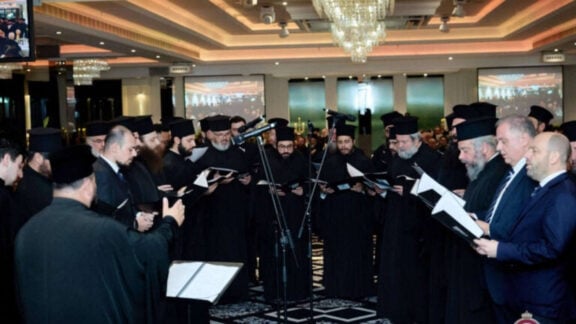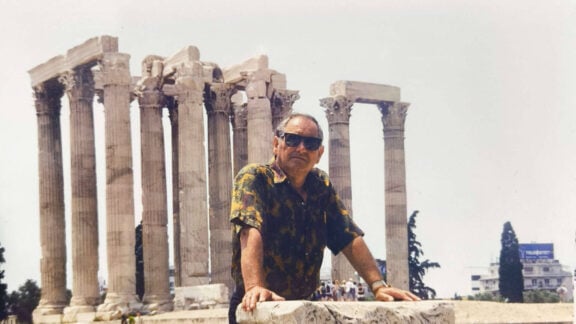In a first of its kind, a discovery of a tomb on a roadside in Israel may hold the remains of an ancient Greek courtesan who travelled with Alexander the Great’s armies.
In statement shared with Live Science, archaeologists said the woman was buried 2,300 years ago with an ornate bronze mirror, far from any settlement, on the road to Jerusalem.
They believe she may have been a professional escort, a ‘hetaira’ in ancient Greece, accompanying military men on their campaigns.
“It is most likely that this is the tomb of a woman of Greek origin who accompanied a senior member of the Hellenistic army or government,” the researchers said.
They added that her client may have fought in Alexander the Great’s army or in the Wars of Diadochi, a series of battles between generals to see who would succeed Alexander after he died in 323 B.C.

Israeli newspaper Haaretz reported on the discovery, with researchers telling them that the hetaira was between 20 to 30 years old when she died, and her remains were cremated alongside the mirror and four iron nails.
They believe she is of Greek origins due to the mirror being enclosed in a folding box, a type previously found in Greco-Hellenistic burials, and while these accessories are often engraved or decorated with idealised female and goddess figures, this on just has a simple pattern of concentric circles.
Israel Antiquities Authority archaeologist Liat Oz says “this is only the second mirror of this type that has been discovered to date in Israel.”
Researchers theorise that it may have been a gift from her client and added that women would also receive bronze mirrors in their dowry – but married women rarely left their homes in Greece, let alone joined their husbands for war efforts.
Historic records say that courtesans in ancient Greece were educated and literate, and while providing sexual services, they also entertained with poetry, dancing and acting.
One famous hetaira was Thaïs, who joined Alexander the Great on the road.
The iron nails found in the burial are often found in ancient Greek, Roman and Jewish graves and were likely credited with “magical powers” according to Tel Avivi University archaeologist Guy Stiebel.
Powers to help ward off the evil eye and prevent the dead from rising again.
Researchers hope to discover more about this finding to discover more clues about the woman’s background and who the man she accompanied was.









